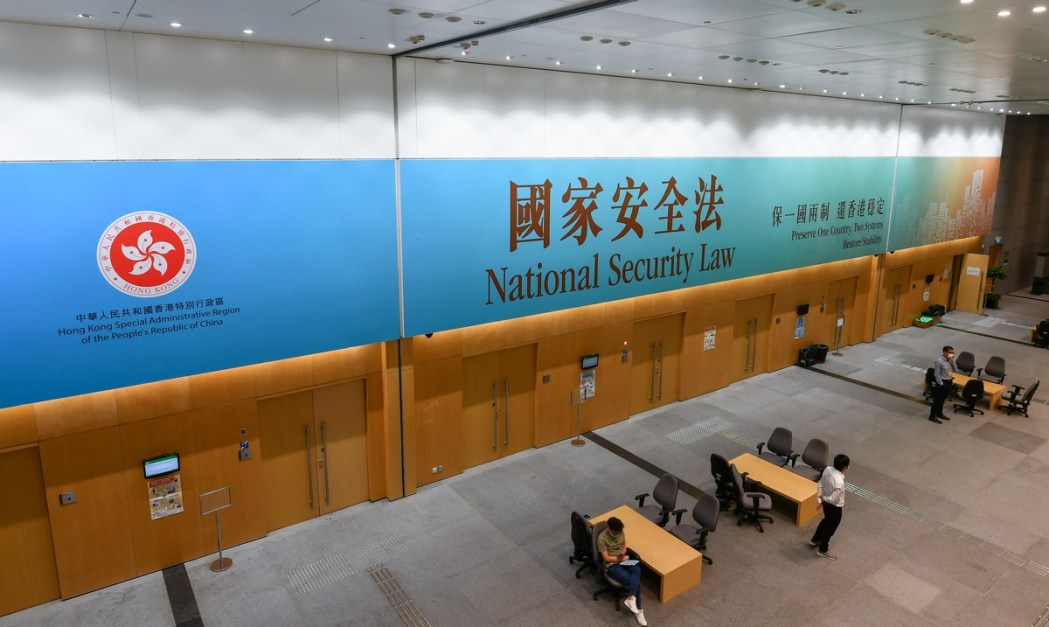Hong Kong, China
Ratings agency Moody’s downgraded its outlook on Hong Kong’s credit rating to negative from stable on Wednesday, following a similar change for China the day before.
The city’s economy was buoyed by China’s post-pandemic reopening but recovery has slowed in the second half of the year, with the government revising full-year growth estimates down to 3.2 percent last month.

Moody’s said the “principal driver” of Hong Kong’s negative rating outlook was the “tight linkage between the credit profiles” of the finance hub and China.
This is the first time Hong Kong has lost its “stable” rating outlook since January 2020.
“The change in Hong Kong’s rating outlook reflects Moody’s assessment of tight political, institutional, economic and financial linkages between Hong Kong and the mainland,” the agency said in a statement.
It said China’s downside risks would translate to risks for Hong Kong’s creditworthiness, adding that changes in “institutional and political linkages” were a key element.
“Following signs of reduced autonomy of Hong Kong’s political and judiciary institutions, notably with the imposition of a National Security Law in 2020 and changes to Hong Kong’s electoral system, Moody’s expects further erosion of the (city’s) autonomy of political, institutional and economic decisions to continue incrementally,” it said.

“This ongoing process is currently reflected in Moody’s assessment of the quality of Hong Kong’s executive and legislative institutions.”
The Hong Kong government said it disagreed with the outlook downgrade and rejected Moody’s comments on the city’s eroding autonomy as “unfounded”.
“Hong Kong’s deepening and expanding economic and financial ties with the mainland should not be a rating constraint,” it said in a statement.
“On the contrary, these ties are a source of strength for Hong Kong’s long-term development.”
It said the security law has “restored stability and increased the confidence in Hong Kong” and put an end to chaos and violence.
Beijing imposed a sweeping national security law in Hong Kong after the former British colony saw huge and at times violent pro-democracy protests in 2019.
Authorities have since ousted opposition figures from the legislature and set up a “patriots-only” electoral system, which extends down to the local level.

Moody’s also said the weakening trend growth in mainland China would affect Hong Kong’s economy, including “through more slowly expanding opportunities for Hong Kong as the key regional economic and financial hub”.
“In turn, weaker growth in Hong Kong could erode the government’s fiscal buffers, as support to the economy broadly leads to a rise in public spending,” it said.
The agency downgraded its outlook for China’s credit rating to negative on Tuesday, citing rising debt in the world’s second-largest economy and concerns over its battered property sector.
Beijing’s finance ministry said in response it was “disappointed with Moody’s decision” and that the agency’s concerns about growth prospects and fiscal sustainability were “unnecessary”.
Type of Story: News Service
Produced externally by an organization we trust to adhere to high journalistic standards.
Support HKFP | Policies & Ethics | Error/typo? | Contact Us | Newsletter | Transparency & Annual Report | Apps
Help safeguard press freedom & keep HKFP free for all readers by supporting our team

LATEST FROM HKFP
HKFP has an impartial stance, transparent funding, and balanced coverage guided by an Ethics Code and Corrections Policy.
Support press freedom & help us surpass 1,000 monthly Patrons: 100% independent, governed by an ethics code & not-for-profit.










